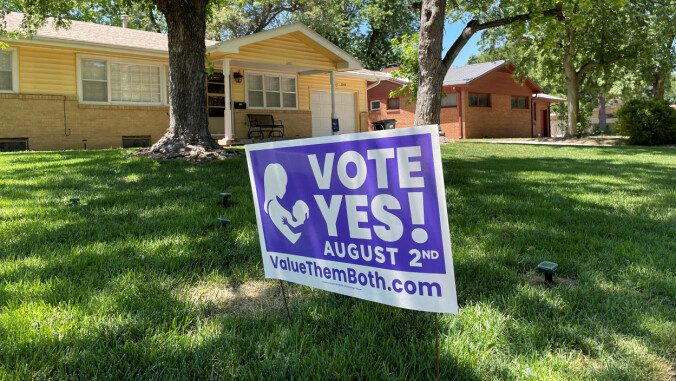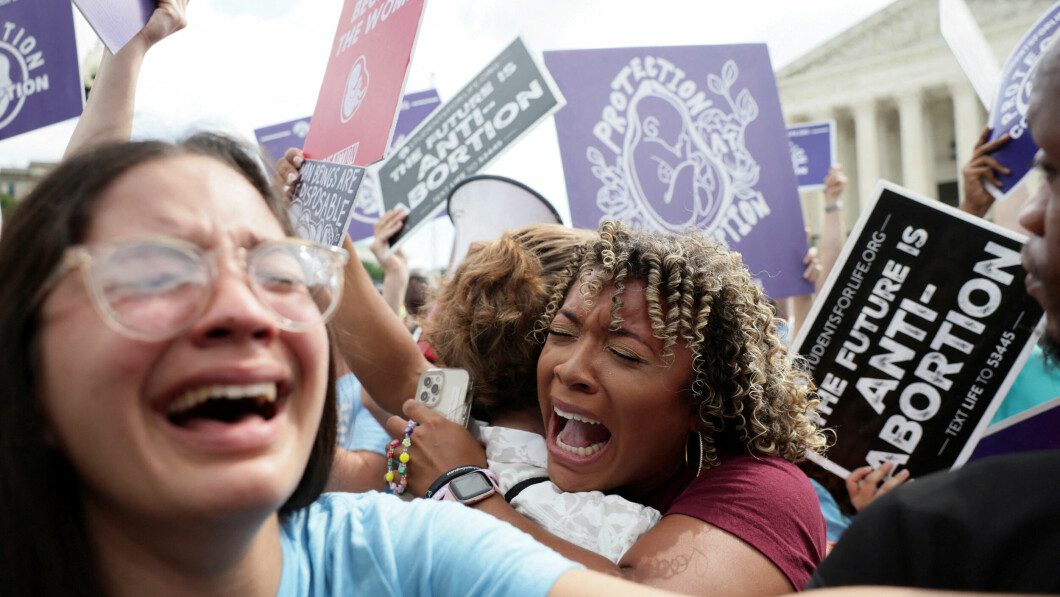Kansas citizens go to the polls Tuesday to vote on whether or not to restrict abortion rights.
This is the first time that a referendum on abortion has been held in a state since the abolition of the national right to self-abortion in the United States in June.
When the polls closed, the Kansas City newspaper reported that voter turnout was historically high. In the last update, 48% of the votes were counted. 65.1 percent of the votes counted want to protect the right to abortion. The outcome from Kansas City is not yet clear.
– Now opponents of abortion in Kansas will try to change the state constitution, so that in the next round they can adopt a ban on abortion, says American expert Helmar Meldy.
There was an intense rally to win votes on both sides, and there is great excitement associated with the outcome.
Migilde himself lived in Kansas, and believed that opponents of abortion would make their way.
“It’s very equal, but I probably think opponents of abortion would get the majority here and be able to remove the right to abortion from the state constitution,” says Migilde.
Campaigns: In recent weeks, cities in Kansas have been filled with competing signs saying “vote yes” or “vote no” to a proposal to change the wording of abortion in the state constitution. Photo: Reuters / NTB
After that, Kansas will eventually impose a near-total ban on abortion, but it will take some time, he says.
The wording will change
Today, abortion is legal until week 22 in Kansas, a right stemming from a 2019 state Supreme Court decision.
Yes, voters want the federal state to change the wording that guarantees abortion rights, and they believe that will allow politicians to make the decision without legal interference.
Among them is the “Value Them Both” campaign spokesperson, Mackenzie Haddicks.
– It will simply restore our ability to hold a conversation, Hadiks told AFP.
Yes: Yes, voters want politicians to be allowed to make their own decisions about the right to abortion, which provokes strong reactions. Photo: Reuters / NTB
No voters, on the other hand, believe the campaign is an attempt to secure an outright ban on abortion in the state assembly.
The amendment would take away a right and freedom that all Kansasians enjoy, says Ashley Ull, a spokesperson for the Kansas No to Constitutional Freedom (KCF) campaign.
He is afraid of more conflict
Mijildi explains that the goal of the anti-abortion movement in the United States is to view fetuses as human beings, and that abortion should be labeled murder, and therefore illegal.
– This case is not over yet. The last time the United States had a debate on how to define human life was in the 1850s, then the topic was slavery. At the time, there was a civil war in the United States, says Migilde.
He doesn’t think the abortion issue is enough to spark a civil war, but he:
With so much hustle and bustle in American politics now, with the abortion issue, the mistrust of the electoral system, the mass shootings, and the fact that it’s become so quagmire, I fear for the political stability and level of conflict ahead, says Megaldi.
Supreme Court ruling Roe vs. Wade was overturned at the end of June, ending nearly 50 years of federal abortion rights in the United States.
Sentiment: Abortion opponents celebrated after the Supreme Court ruling just over a month ago. Photo: Reuters / NTB
– It’s a very hot issue. In many other matters of cultural conflict, the United States has become more liberal, but the issue of abortion in particular has never subsided, says Migildy.
Since Roe vs. Wade was overturned, and a number of states introduced laws banning abortion. 30 out of 50 US states have announced that they will tighten or change abortion rights, according to a public review by The New York Times.

“Organizer. Social media geek. General communicator. Bacon scholar. Proud pop culture trailblazer.”




